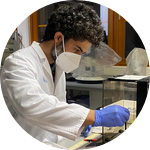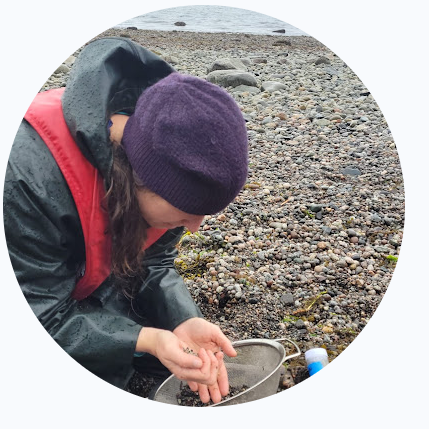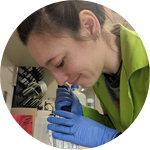Microplastics
Categories

Microplastics are a pervasive pollutant found in every corner of the globe, impacting ecosystems and human health. This challenge seeks to advance research and innovation in the detection, understanding, and mitigation of microplastics in our environment to address this growing problem.
Science Lead: Michelle DiBenedetto
The Projects
Browse the participating projects
AI-Based Analysis of Microplastics' Impact on Antibiotic Resistance Transmission in Aquatic Ecosystems
Microplastics (MPs) and antibiotic resistance genes (ARGs) are emerging contaminants spread widely in the...
Investigating the roles of microbes in biodegrading or colonizing microplastic surfaces
Recently, we observed different PCB adsorption onto microplastic surfaces in Newtown Creek compared to Navy...
Rolling in the deep: Neptune balls as plastic sentinels
Plastic pollution poses a significant threat to marine ecosystems. Seagrass beds have been recognized as...
Are microplastics impacting shellfish?
We are conducting microplastic shoreline surveys and would like to explore if microplastic is commonly ending...
Mitigating the environmental impact of ocean plastics via catalytic chemical recycling.
Waste plastics are accumulating in landfills and the natural environment at unsustainable rates, causing...
How do microplastics interact with other particles in aquatic environments?
In this research project, we will use controlled biofouling experiments to quantify the progressive colonization...
Eastern oyster vs. harmful bacteria, global climate change, and microplastics: Who wins?
Eastern oyster, Crassostrea virginica, are a keystone species and a focal aquaculture species. These bivalves...
Microplastics in patagonian marine mammals: where do they come from and what is their fate once ingested?
The purpose of this work is to determine which prey species contribute the most microplastics to the diet...
Building a low-cost microplastic detection system for deployment in Mauritius
Millions of tons of plastics enter our ocean each year, eventually breaking down into microplastics (MPs...
More About This Challenge
The sciency details
Challenge Aims
The Microplastics Challenge aims to support innovative projects focused on addressing microplastics pollution. We encourage proposals that explore new methods for microplastic sensing in the environment, advance the understanding of microplastics fate and transport, investigate the impacts of microplastics on ecosystems and health, or develop technologies for mitigation including removing microplastics from the environment.
Proposals should clearly articulate the research question, the innovative methodology or technology being proposed, expected outcomes, and potential impact on the field of microplastic research and mitigation. We encourage submissions from a diverse range of applicants, including academic researchers, NGOs, industry professionals, and independent scientists.
Projects with a multidisciplinary approach, practical applications, and potential for significant environmental impact are highly encouraged.
ROLLING SUBMISSIONS: The goal of this small, fast grant program is to get these projects off the ground quickly. If selected, the grant (up to $10,000 with the average Science Engine grant being $4,000) will be applied towards an ongoing Experiment project. Project leads are encouraged to try to raise additional support from the crowdfunding process, as granted amounts may only cover part of the project funds. The sooner you fill out a project application the better (use the "start a project" link below). In addition to funding, we hope to stay engaged with the projects as mentors and supporters, helping to make the experiments a success.












 Challenge Grants
Challenge Grants